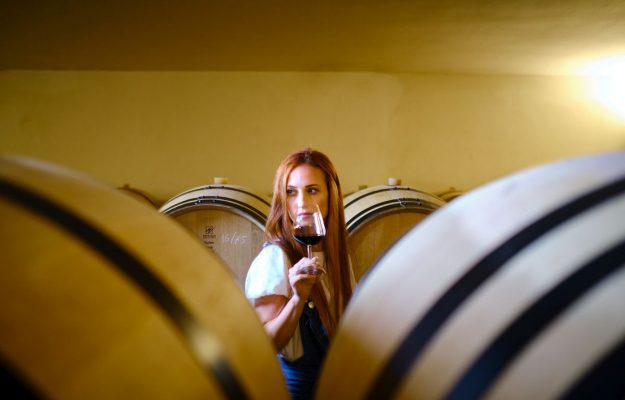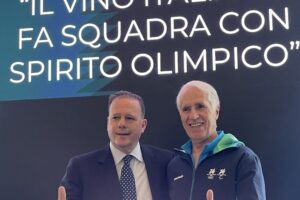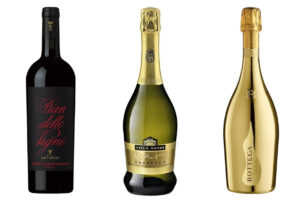Food and wine is a leading sector for the Italian economy and it plays a leading role in tourism as well. According to Grand View Research data, over the next 5 years wine tourism will grow + 12.9% per year, while food tourism is approaching an estimated +19.7% annual growth. Observing food and wine tourism, one of the most interesting trends and data is definitely “cheese-lovers”. Over the past 3 years, tourism interested in discovering Italian cheeses has grown +7.3%, especially among young people (between 18 and 24 years old), while leading cheese dairies were the second most visited production companies (19%, second only to wineries, at 32%) , according to data revealed in Roberta Garibaldi’s “Report on tourism and the dairy world”, produced by AITE-Associazione Italiana Turismo Enogastronomico (Italian food and wine tourism association). Cheese dairies are appealing because of the hands-on and stimulating experiences they offer, including cheese pairing courses (55% of respondents highly appreciate) or cheese workshops (52%). Therefore, the strength of these numbers is the basis for the 16th edition of “BTO (Be Travel Onlife)” to be held in Florence (November 27th and 28th at Stazione Leopolda). This year’s theme will be weighing Artificial Intelligence against the irreplaceable value of human interaction (“Balance: AI Confluence in Travel”), and proposes to investigate the challenges and unexpressed potential of what has, over the years, been considered one of the main drivers of Italian tourism: taste.
The theme will be a common thread and will run through four topics of discussion: “Destination”, “Digital Strategy”, “Food & Wine Tourism” and “Hospitality”. The topics of discussion will be addressed by entities and guests, such as Roberta Garibaldi, Luca Mercalli, climatologist, Emilio Casalini, journalist, Riccardo Pirrone, CEO KiRweb, Annamaria Barrile, General Manager of Confagricoltura, Donatella Cinelli Colombini, producer and founder of Movimento Turismo del Vino, Lavinia Furlani, president of Wine Meridian, and Vinitaly, Mastercard, Almaviva, ISMEA (the Italian institute of services for agro-food markets), Federfranchising and Slow Food, to name a few of the participating organizations. The food and wine tourism sector may seem to be never-ending. However, it still has to face numerous challenges. Taking into consideration wine tourism, especially, there was +18% growth in average spending in 2023 (109 euros), 3.3 people on average per booking (43.8% between 25 and 34 years old), and 76.5% of visitors purchased at least one bottle of wine at the end of their visit to the winery. Data in the “Report on Wine Tourism and Direct-To-Consumer Sales 2024” by Winesuite and Divinea, revealed that almost 80% of reservations are made online, meaning there’s a savings of hundreds of hours of work, though there are a whole series of critical issues to consider that are weakening the growth of wine tourism. For example, many entrepreneurs have declared that they are unable to find qualified workers (43%), there are not enough effective territorial collaborations (17%), there are infrastructure problems including inadequate roads and public transport (14%), the limits imposed by bureaucracy, and excessive regulations (14%), and there is a total lack of specific financial incentives for the wine tourism sector (10%). Another sensitive and vitally important issue is global warming, about which we must intervene decisively and promptly. The Paris Agreement established that to avoid even worse consequences, it is necessary to keep the temperature increase below 2 degrees from now until 2100, and that, instead, at current growth rates, warming would be around 5 degrees. If we do not change our course, life on Earth will be subjected to extremely serious changes. Consider that water levels would rise (taking into account an increase of 5 degrees Celsius compared to today's temperatures), one meter, which is enough to submerge Venice, Miami, New York and many other coastal cities. Further, we must take into account that global warming would lead to prolonged and chronic droughts, and consequently, to food shortages and famines in large areas of the globe, which would mean increasingly massive migrations from areas that would no longer be able to maintain food and wine production. A crucial role for the future of agriculture is achieving the objectives of competition and sustainability. The main challenge is digitalization, which could boost the Italian agritourism sector, since in 2023 it registered more than 4 million arrivals, and more than 15.5 million tourists. Digitalization could make it grow even more by building an identity-based and diversified, while at the same time, contemporary and sustainable, tourist offer around agricultural production.
Another challenge for the food and wine tourism sector is the difficult period that the restaurant industry has been facing recently. It might be appropriate to look at the sector’s past to interpret its future, analyzing its main trends and critical issues and then finding a new and solid economic sustainability. A way to do this could be to create innovative projects, such as "Aromi d'Italia”, by the Ministry of Tourism and the Tuscany Region with Toscana Promozione - a journey on the trail of the scents of Regional cuisines to classify their aromas in search of olfactory emotions, to promote products, Regional cuisines and tourism.
The role of automation and automatization in the world of food and catering is another topic of discussion at the event, which prompts the ever-present doubt, “Will innovation replace man or assist him"? To find an answer to this question, we must look with an open mind and far-sightedly to the restaurant business of tomorrow. Therefore, on the topic of the relationship between new technologies and tourism related to food and wine, we need to define the impact that generative Artificial Intelligence can have on food & wine tourism, which enables us to offer hyper-personalized experiences. A concrete example of this type of approach is being offered in the application for Pesaro 2024, Italian Capital of Culture. AI is an opportunity for restaurant franchises, which thanks to economies of scale, are more sensitive to renewal and to applying new high-tech tools. And, in the wine tourism world, it would allow them to assist the food and wine tourist, by personalizing their trip, and the producers in the vineyard, in the winery and the sommeliers, while not replacing the human factor, their sensorial experience and their exceptional culture. One of the solutions based on Artificial Intelligence to sustain food and wine tourism, is the concrete example of the virtual sommelier, accessible via QR code, which suggests targeted food-wine pairings in restaurants that definitely helps the staff during work peaks. The virtual sommelier was created by PAr-Tec. It is not limited to catering, but can be implemented for wineries, wine cellars, and small and large distributors, offering reliable support to enhance the entire wine offering and contribute to targeted and differentiated sales strategies. All of this is within the world of new technologies, which, however, are also changing. Social medias, for instance, are undergoing a profound evolution, becoming less and less of a network and more and more of an entertainment medium, as well as directing food & wine content creators and influencers to rethink their role or their activity.
Copyright © 2000/2026
Contatti: info@winenews.it
Seguici anche su Twitter: @WineNewsIt
Seguici anche su Facebook: @winenewsit
Questo articolo è tratto dall'archivio di WineNews - Tutti i diritti riservati - Copyright © 2000/2026







































































































































































































